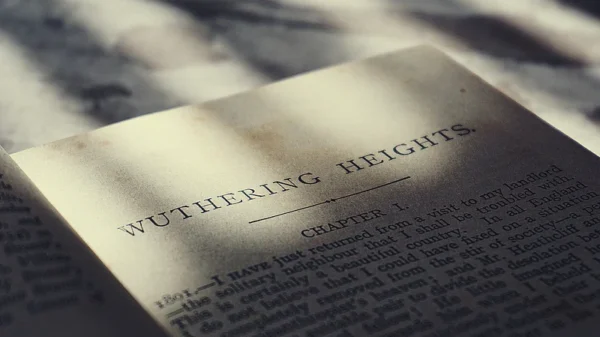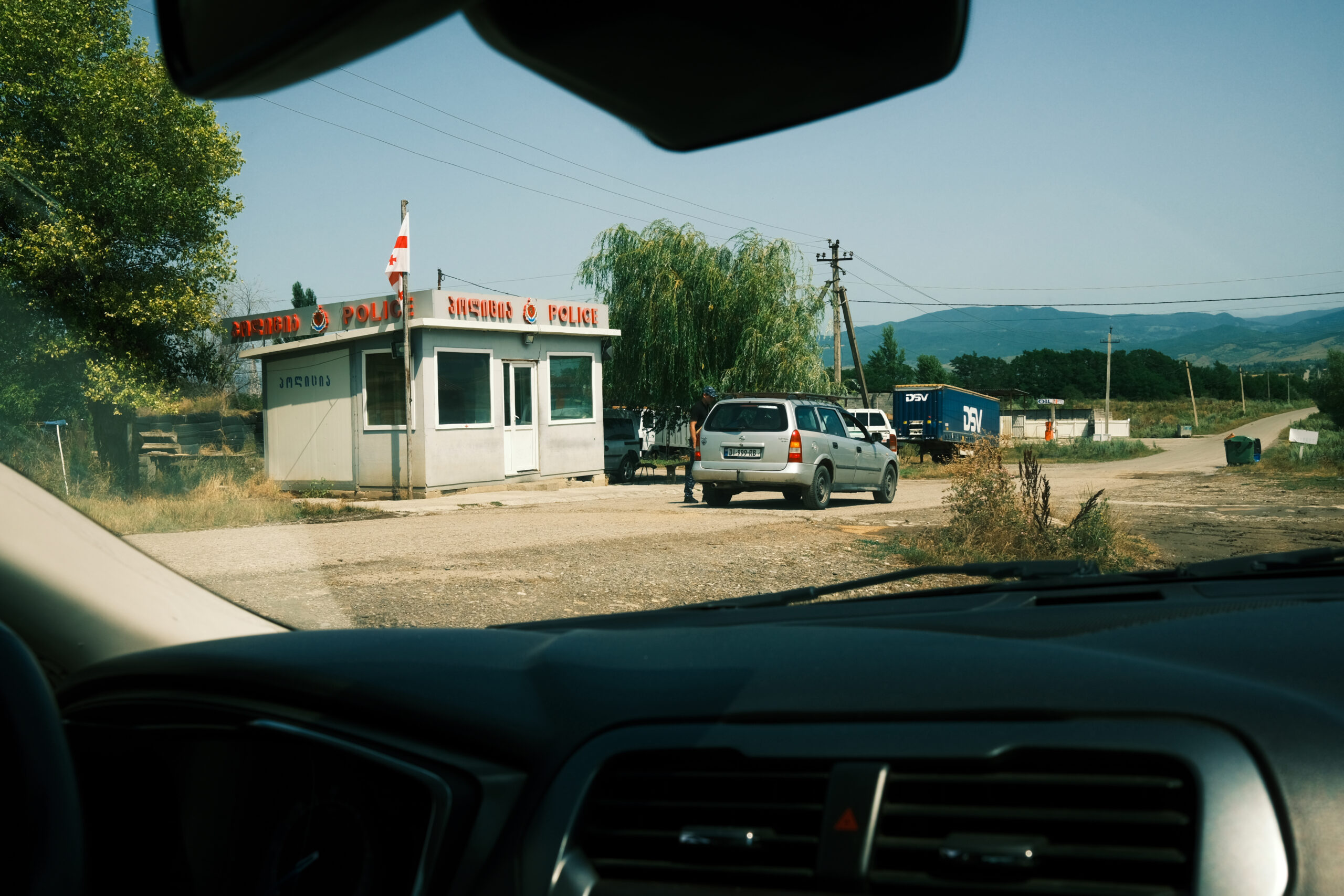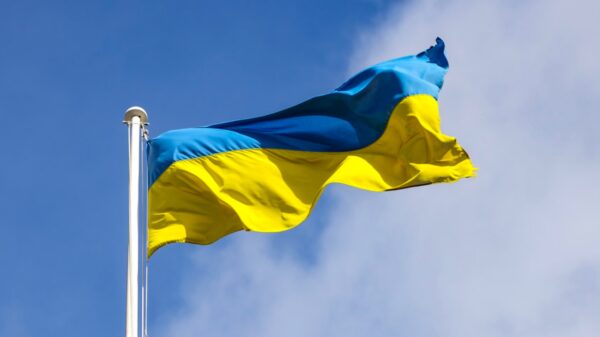Culture Editor Jagoda Ziolkowska sheds light on an often overlooked aspect of the war in Ukraine, tracing the journey of a Russian migrant in Georgia—a country at its own crossroads.
This article was first published in print on 16 September 2024.
An eclectic panorama of shiny skyscrapers under construction, the paradoxically blue waters of the Black Sea and a smooth stone from Mars.
It is possible that the amateur artist who scratched the word “MARSE” on it had actually had Marseille on their mind. Still, the fact remains that their message was delivered by the waves and discovered by another traveller, my father, on the shores of the Georgian city of Batumi.
The Black Sea washes up such solitary stones from time to time, carrying them far from their origin. A similar fate awaits people living in the countries that surround it, left alone in their homeland struggles or stranded on foreign shores.
Each country has its own, often tragic, story to tell. For Ukraine, it’s the fight to prove its sovereignty since the annexation of Crimea in 2014. Georgia is embroiled in tensions with its breakaway regions of Abkhazia and South Ossetia. And lately, the drama is also unfolding for Russia, the very country that has been pushing this narrative towards its own unhappy ending.
The shockwaves of Vladimir Putin’s full-scale invasion of Ukraine on 24 February 2022 reverberated across the world. While most eyes were turned towards Kyiv, anti-war protests erupted inside the aggressor-state as well, only to be quickly and brutally suppressed by Russian police forces.
As repressions became more severe and the president showed no signs of backing down, many Russian citizens realised that leaving their homeland was safer than staying. The figures are striking. The BBC reports that around one million Russian citizens left the country in 2022 alone.
One such person is Vitalii Zagnii, a 35-year-old oppositionist whose brother and parents live in the seaport city of Vladivostok. He decided to leave Russia due to its oppressive policies back in January and had been staying in Türkiye when he learned about his country’s attack on Ukraine.
“I thought, where can I go?”, he recalls during our conversation over Zoom. “I understood that I couldn’t return to Russia because they, the government, can catch me and send to the front.”
For people like Vitalii, the threat that conscription poses is twofold. Not only can they lose their lives in the name of a cause they fundamentally oppose, but they also become a danger to Ukrainians whom they never wished to harm in the first place.
“I’m against war. I’m against the government. I don’t like my president”, Vitalii declares firmly, “Now I can’t live in Russia.”
In March 2022, Vitalii arrived in Batumi where he resides to this day. While we speak, he has to pause several times, switching to Russian to talk to the parents whose children attend the preschool he manages. Vitalii is an economist, but he cannot get a job in his profession abroad, as his diploma has the stamp of a Russian university.
“I don’t have good English”, he admits, “and in Georgia, the second language is Russian.”
The kindergarten where he works was founded two years ago by a Ukrainian citizen whom Vitalii met on-site. Before arrival, he had no local connections.
It may be surprising to outsiders that some Russian migrants have established a good rapport with Ukrainians who fled the war. However, for them, condemning Putin’s aggression is much more important than the colour of the passport.
Now, Vitalii is part of a bigger community of Russians who, like him, disagree with their state’s actions.
“More people are opposed. Absolutely”, says Vitalii. During his two years in Batumi, he met only one person who supported the Russian government. They never spoke again.
However, the matter is not all black and white. The lack of visa requirements, attractive prices and the relatively European culture of Batumi, alongside the capital city of Tbilisi, proved enticing to less politically active Russians as well.
Although the data is scarce, it is estimated that in 2023 roughly 90,000 Russian citizens stayed in Georgia, whose own population is less than 4 million, and it shows. During the peak of migration, Russian was more commonly heard on the streets of major cities than Georgian.
“The increase in their number causes daily discussions in our country”, comments Anri Bolkvadze, a young Georgian living in Batumi.
This is hardly surprising. For most post-Soviet states, the moment comes when they have to decide: Russia or the West. Many people see this as a choice between past and future—between continuing imperialistic influence and sovereign democratic governance. Usually, it is the latter vision they want to bring to life. This is what Belarus has failed to achieve. This is what Ukraine is fighting for.
Evidence of the overwhelming pro-European shift of Georgian civil society is not hard to find. All one has to do is step off the plane at the Kutaisi International Airport and see the yellow stars of the European Union (EU) displayed alongside every Georgian flag, despite the fact that Georgia is not a member of the EU.
Add to that what Georgians perceive as an occupation of a fifth of their land by the Russian Federation, and a political climate that is in part shaped by mass protests against the government’s pro-Kremlin politics that froze the EU accession negotiations, and the tension becomes not only palpable but also two-sided.
“In Georgia, we call them motherf***ers”, Anri puts bluntly, referring to Georgians who are openly content with the influx of Russians into the country.
The balance is delicate. If Georgia becomes too friendly towards Russia, it risks forfeiting all the work it has done to join the EU. If it blocks Russian citizens from fleeing there, it condemns innocent civilians to a life at risk under autocratic rule. Because where else could they go?
The danger is tangible. As a result of the mobilisation in Russia, one of Vitalii’s colleagues was sent to Ukraine and killed on the battlefield. Others avoid attracting the authorities’ attention by keeping silent and hiding in small villages.
Still, many Russians realise they won’t be able to stay in Georgia for long. The threat that their own state might stretch its hands to catch them—quite likely, given its influence on Georgian officials, is too great. They know they will have to move again, such as to Vietnam or maybe Indonesia. Further and further away from the home that is no longer home.
When asked whether there is anything he wished the world understood about the situation of the Russian people, Vitalii refers to videos circulating online that depict Russian police beating protestors with batons. “It’s true. It happens. And unfortunately, it’s our reality now.”
The Black Sea is turbulent. Giving a lifeline to one nation may equate to throwing another overboard. If nothing changes, stranded rocks, whether from Mars or not, will continue to be cast onto unfamiliar lands. Let’s hope the storm ends soon.

















